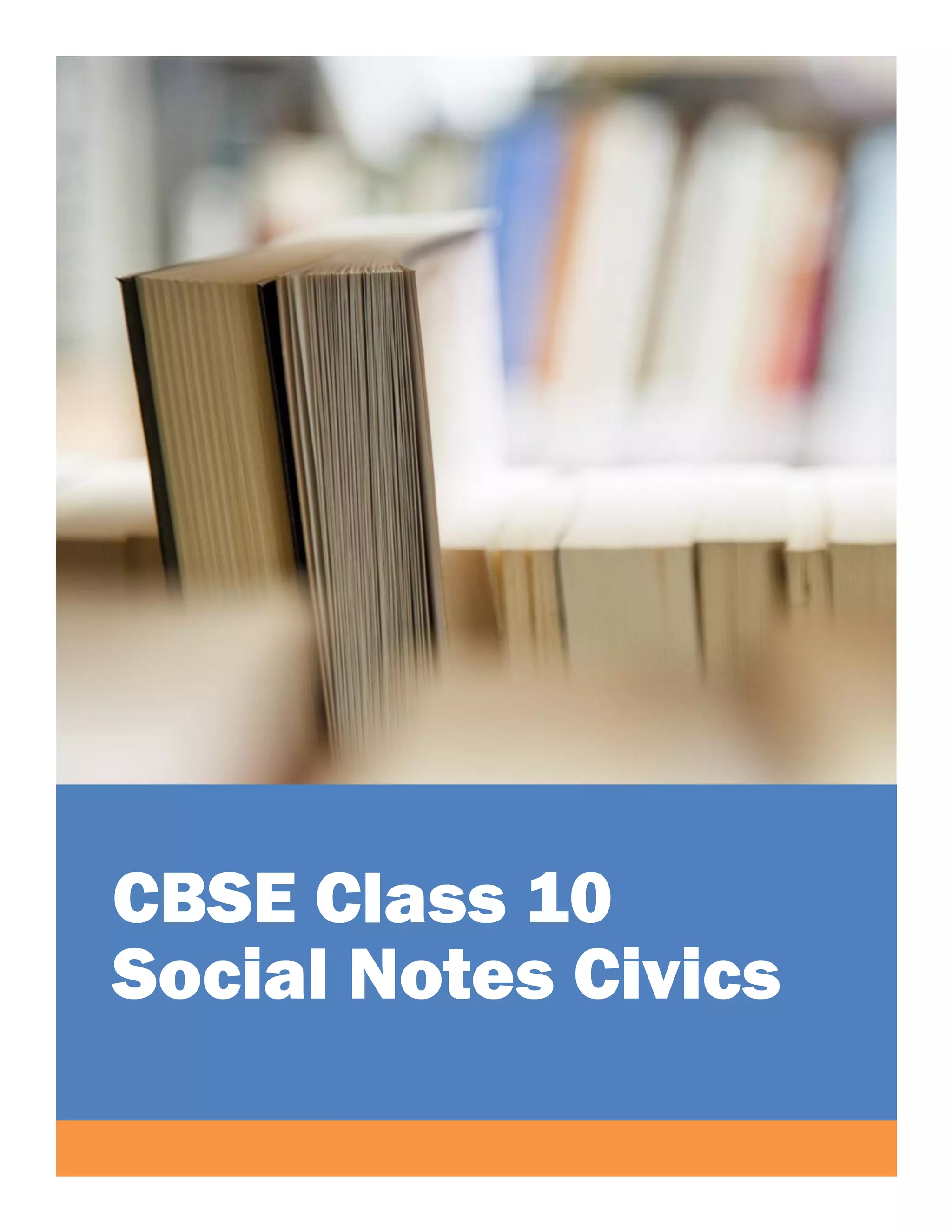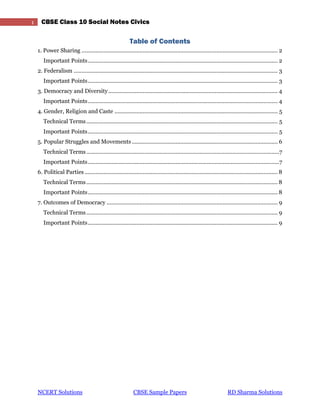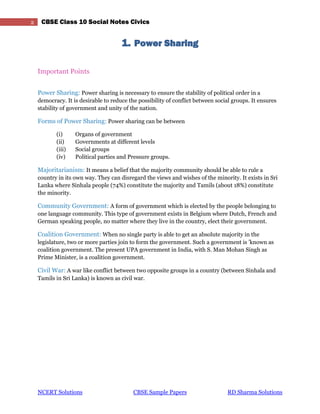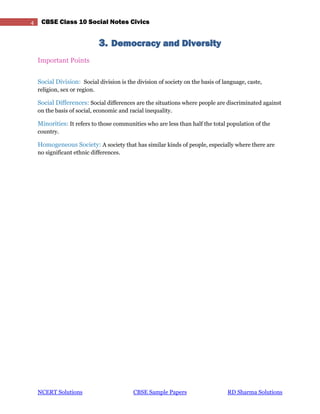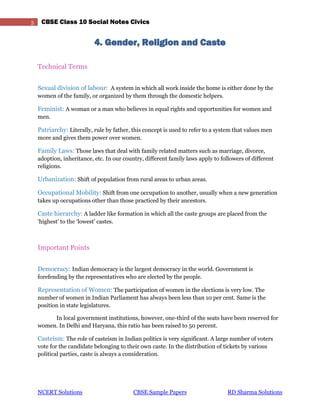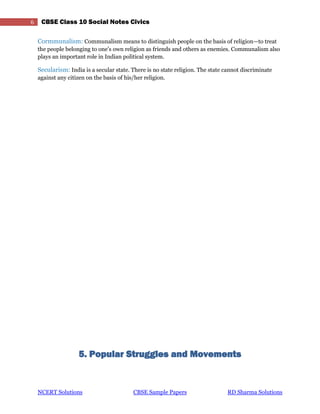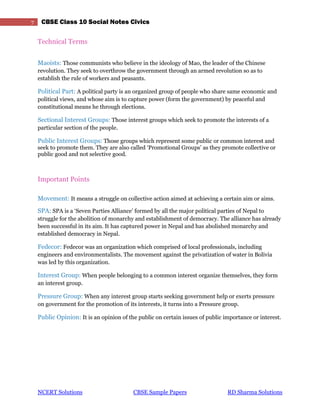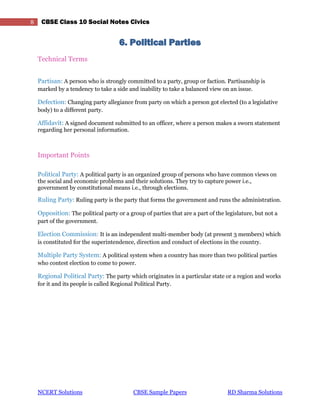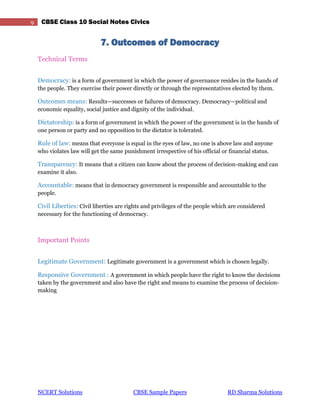This document provides notes on civics topics for CBSE Class 10 students. It covers 7 chapters: 1) Power Sharing, 2) Federalism, 3) Democracy and Diversity, 4) Gender, Religion and Caste, 5) Popular Struggles and Movements, 6) Political Parties, and 7) Outcomes of Democracy. For each chapter, it lists important technical terms and key points about the chapter topics to help students understand concepts related to civics and India's government.
